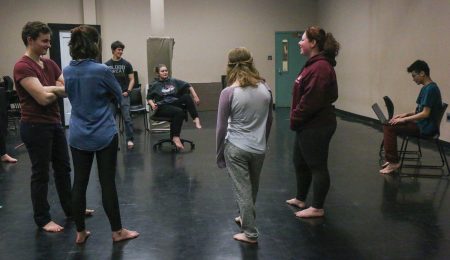Check, check, checkmate!
Adapted from the 1983 book The Queen’s Gambit by Walter Tevis, the 2020 Netflix series of the same name has surged in popularity among the chess community and the general public.
On Oct. 23, Netflix released the series, which follows an orphan, Beth Harmon, and her coming of age into becoming one of the greatest female competitive chess players of all time.
Searches for chess sets on eBay tripled after the release, while Chess.com and chess apps also increased in popularity. Around mid-March, 378,000 new players signed up in a week. Chess.com also honoured the show by creating a Beth Harmon bot to play chess with at different levels.
The show inspired students — current chess players and newcomers to the sport alike — to play more. The series also had a positive impact on views of female chess players within the chess community, as there are only a few female players amongst a majority of male players.
There has historically been known to have a misogynist underling in the chess community. In 1962, chess world champion Bobby Fischer said “I guess [women] [are] just not so smart,” and Garry Kasparov, another chess world champion said that chess is “not for women…women are weaker fighters.” However, there have always been female chess players at the top of the sport — like Judit Polgár and Hou Yifan, to name a few.
For players in the competitive chess scene at the University of Ottawa, The Queen’s Gambit helped reignite interest in the sport.
“I used to play chess as a child. I would go to other middle schools just to play chess. By the time I reached high school and then university, I just stopped playing chess as I got too busy with school,” said Arunasva Bhuyan, a member of the U of O’s chess club.
When quarantine hit, Bhuyan found himself reminiscing about playing again.
“What appeals about it most is nostalgia. When I saw the character sign-up for a chess tournament, it reminded me of myself back in the day,” he said.
“I started playing again since I thought I lost that part of myself.”
It’s not just those at the chess club who were inspired by the show.
Veronica Hitchlock, a second-year student in the commerce and juris doctor program, played chess during highschool and despite previous sexist experiences, she finds herself playing again.
“When I was still just starting to play chess there were a handful of boys in my high school club who didn’t take kindly to the fact that I was actively trying to improve,” said Hitchlock.
“[They] would make excuses if they lost or rude remarks if I won.”
Additionally, Hitchlock found that the show has shifted the perspective of many people in regards to the game, making it grow from a niche interest to a mainstream hobby.
“It made me feel a lot more comfortable chatting about the fact that I’m an active member of the chess club while previously it wasn’t something I would bring up as often because I was worried I would be stereotyped.”
President of the U of O chess club, Zachary Dukic, is also seeing the benefits of how the show brought the game into the light. “I am happy to see many new people getting into the game of chess. As a National Master of chess it definitely makes me feel like I have more value in the chess community,” said Dukic.
With the rise in popularity, he is also helping others improve on their game. “I am receiving a lot more inquiries for chess lessons than ever before … I am [also] working with the other execs to make the game accessible to players of all skill levels.”
“I think chess is a fantastic, beautiful game that everyone would benefit from playing.”





